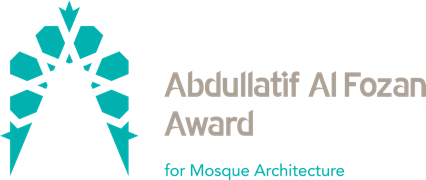
THE ROLE OF FRIDAY SERMON IN SHAPING THE OPINION OF THE WORSHIPPERS IN JORDAN
Date Added
25/07/2019
Content Type
Dissertation
Category
Ph.D.
Link to Content
Subject Area
THE ROLE OF FRIDAY SERMON IN SHAPING THE OPINION OF THE WORSHIPPERS IN JORDA
Author
Philip Odeh Madanat
Description
This field study investigates the intricate relationship between Friday sermon (khutba) and the worshippers’ public opinion in Jordan. Prompted by the taboo label assigned to scholarship on khutba, it probes whether the agenda-setting, framing and priming process in mass communication (the media) applies to public communication (the mosque).
The hypothesis is that in a marketplace for loyalties, the preacher can impact his worshippers’ perception of reality in as much as he can circumvent State regulations and meet his audience’s expectations by setting their agenda re khutba theme and its attributes.
Field observations (six months’ long with three Informants) are crosscut with conclusions drawn from in-depth interviews with concerned actors, thematic content analysis of 24 different khutbas in Amman and Zarqa, analysis of relevant coverage in the print and online media, and a questionnaire to 200 mosque-goers. The period covered is 2008 till 2013, crosscutting the Arab Spring and its ensuing political change.
Thematic analysis shows the mosque preacher frames his khutba to endorse a certain definition for the salient theme, suggest a causal interpretation, furnish for a moral evaluation, and recommend a certain treatment (Entman1993:52). This process works as a hedge against possible clash with pertinent regulations, and is filled with content drawn from the mutual expectations between preacher and an ostensibly dormant religious audience yet highly interactive on social media.
The influence of this speech is affirmative for the legitimacy of the regime by helping it crowd out political competitors, mainly the Muslim Brotherhood movement. The worshippers do not expect the preacher to come up methodological solutions for complex political issues, therefore the dichotomy between citizens’ disagreement with then changing State regulations (2006) and the vindication of the Muslim Brotherhood movement as the prime victim of State control.
The losers in this shuffle for allegiances’ game are the State and Muslim Brotherhood. The spillover is the preacher and congregation reaching implicit consensus in setting the khutba’s agenda and its attributes, as both have the wit to fathom the officialdom’s scheme thanks to diverse available sources to reinterpret controversial content.
Through this process of framing contest the audience integrates the perceived message into packages forged by means of prior personal experiences and discussions with others in the religious space and the public sphere. Therefore none of the frames can exclusively shape the opinion of the worshippers (Nisbet 2010: 47 & 48) as these frames are effective in as much as they resonate with the audience’s prevalent schema and their strongly held value constructs such as ideology, political affiliation or religious belief.
This conclusion opens up for questions regarding the nature of agenda settings
tools being used by both the State and actors in the religious sphere concerning
their functions and viability. The Researcher recommends that a team of
researchers equipped with sound knowledge and experience in ethnography,
critique-based approach and quantitative scholarship further fathoms this
interdisciplinary field in order to unravel how the agenda-setting, framing and
priming processes work together in shaping public opinion in an Arab and Islamic
context
Files
English
Philip Odeh Madanat
Information and Knowledge Society Doctorate Program, Universitat Oberta de Catalunya - Barcelona, Catalunya, Spain.





